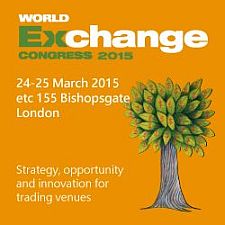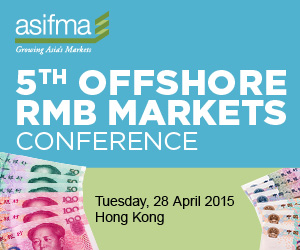Korea
Korea Exchange Equities
Instruments
Equities: Common stock, preferred stock, warrants, subscription right certificates, Real Estate Investment Trusts (REITs), Exchange Traded Funds (ETFs), mutual funds.
Debt: Government bonds, municipal bonds, special public bonds, financial bonds, corporate debentures, repurchase agreements (repos), convertible bonds, exchangeable bonds, bonds with warrants, etc.
Money Market: Beneficial certificates, treasury bills, certificates of deposit, commercial paper, money market instruments.
Others: Index futures and options, USD futures/options, CD futures, Korea Trerasury Bond futures, Gold futures, individual stock options, oil futures.
Board Lots
Equities: Stock Market Division: 10 shares/units (one share if the price is KRW50,000 or highter)
Debt:
Bonds (except equity related debt KRW 100,000 (face value) securities): KRW 10,000
Warrants: 10 warrants
Investment funds: 10 Units
Beneficial Certificates: 10 Units
Clearing Fees
Exchange Fee - 0.93385 bp
Stamp Duty - 30 bp (sell only)
Dividend Payment Frequency
Quarterly, semi-annual or annual. Record date is typically December 31 (around 80% of issuing companies in Korea have their book-close date on December 31). The dividend ratio is based upon the market value insted of per value.
Interest Payment Frequency:
Quarterly, semi-annual or annual
Interest Accrual Rate:
Actual/365-day basis
Corporate Actions
Common Events: Rights and bonus shares
Rights Tradeable: Rights can be legally traded either at the KRX or the OTC market.
New Shares from Exercised Rights: Typically received one month after payment. Listed Companies are permitted to fix the subscription price of rights issues up to three business days prior to the subscription date. This shortened timeframe allows investors three days to fund their account when taking up a rights offer. Corporate actions are reported daily by the KSE.
Proxy Voting
Foreign Investor Restrictions: Unrestricted voting rights
Shares Blocked: Shares are not blocked from voting during meetings
Meeting Notices/ Agendas:
Provided in Korean by the companies from which the subcustodian translates a summary of the agenda into English. Annual general meetings and extraordinary general meetings are officially announced two weeks in advance and are typically convened by boards of directors. Shareholders owning more than 3% of the outstanding shares are also allowed to convene
meetings.
Meeting Outcome: Available on the day after the meeting
Company Reports: On request, subject to availability
Power of Attorney: Required
Other: Not applicable
Foreign Investors
Market Entrance Requirements
This is an FII market. Please contact your RBC Dexia Investor Services representative.
Korean authorities are streamlining application procedures for non-residents. Under the new system the following documents are required to obtain a foreign investor ID (IRC: Investment Registration Certificate) number:
* Power of attorney
* Certificate of Incorporation
* IRC Application form
Holders of equity-linked securities issued by Korean companies in overseas markets (e.g. convertible bonds, bonds with warrants, exchangeable bonds, depository receipts) do not require an ID if the security is to be sold within three months of conversion. Qualified investors can apply directly to the broker for exemption to entrustment deposit requirements. Most Foreign Institutional Investors are exempted from the entrustment deposit requirements, however, a cautious broker may require further information for the credit review. Only a copy of the investor’s ID card is required.
Investment
Restrictions
Orders which would exceed the quoted foreign ownership limits in certain industry sectors are blocked by the KRX’s computer system.
Major shareholders are not allowed to sell more than 5% per month of shares registered with KOSDAQ. Venture capitalists holding more than 10% of a company’s shares are prohibited from selling for six months if their investment was within the year following registration with KOSDAQ, and three months if the investment was after the year following registration.
Naked short selling is prohibited but covered short selling is allowed in the market, subject to anticipated shares coming into the securities account on settlement date (i.e. loan-return, stock div, bonus, DR cancellation)
Repatriation Policy
The following MOFE guidelines apply to Foreign Institutional Investors (FIIs):
* FIIs are permitted to execute spot (buy KRW) foreign exchange deals only with evidence of an underlying securities transaction
* FIIs are permitted to open domestic KRW cash accounts and to freely withdraw these funds
* FIIs may deposit payments from asset-backed securities and dividends into free KRW accounts and do not have to repatriate these funds immediately.
* FIIs must go through Foreign Exchange Banks when executing a foreign exchange transaction required for their investment activities in the local securities market
* Certain restrictions exist on derivatives and forward exchange accounts
A comprehensive system to monitor currency, stock and futures transactions is being developed.
Foreign investors may participate in securities borrowing/lending transactions using the KSD, Korea Securities Finance Corp (KSFC), or a securities company as the intermediary. Previously, a KRW 10billion limit was imposed on foreign investors borrowing from local residents. Based on the relaxed regulation, the KRW10billion limit on borrowing has been abolished.
Foreign investors are now allowed to borrow more than KRW10 billion from local residents. However, the Bank of Korea has employed a reporting exercise for them to “confirm” all borrowings in excess of KRW10 billion. This created additional steps in the SBL process which was viewed as a very intensive and restrictive process. No limit applies to the transactions between non-residents. Both the KSD and the KSDA (for transactions involving securities companies) have published detailed rules for Securities Borrowing and Lending.
Dividend Tax Rate
Standard rate of 27.5% which includes a withholding tax of 25% plus a 10% resident surtax.
Interest Tax Rate
Non-residents’ standard withholding tax rate on interest income for KRW-denominated bonds has been reduced from 27.5% to 15.4% effective January 2007.
Capital Gains Tax Rate
The standard rate is 27.5% which includes a withholding tax of 25% plus a 10% (of WHT) resident tax. Foreign investors holding less than 25% of the shares in a listed company on the KRX are exempt from capital gains tax, effective January 1, 2000.
Tax Treaties
| Algeria | Hong Kong | Papua New Guinea |
| Antigua & Barbuda | Hungary | Philippines |
| Antilles | Iceland | Poland |
| Argentina | India | Portugal |
| Australia | Indonesia | Romania |
| Austria | Ireland | Russia |
| Bahamas | Israel | Singapore |
| Bangladesh | Italy | Slovenia |
| Barbados | Japan | Slovakia |
| Belaruis | Jordan | Solomon Islands |
| Belgium | Kazakhstan | South Africa |
| Bermuda | Kenya | Sapin |
| Brazil | Kuwait | Sri Lanka |
| Brunei | Laos | Swaziland |
| Bulgaria | Libya | Sweden |
| Canada | Lithuania | Sitzerland |
| Cayman Islands | Luxembourg | Taiwan |
| Channel Islands | Malaysia | Tanzania |
| Chile | Malta | Thailand |
| China | Mexico | Tunisia |
| Costa Rica | Mongolia | Turkey |
| Croatia | Moroco | Uganda |
| Czech | MyanMar | Ukraine |
| Denmark | Namibia | United Arab Emirates |
| Egypt | Nepal | United Kingdom |
| Fiji | Netherlands | United States |
| Finland | New Zealand | Uzbekistan |
| France | Norway | Vietnam |
| Germany | Oman | Zaire |
| Granada | Pakistan | Zambia |
| Greece | Panama | |
Stamp Duty: None
Other Taxes:
* All KRX trades are subject to a transaction tax of 0.3% of the transaction value payable by the seller.
* All OTC trades are subject to a transaction tax of 0.5% of the transaction value, payable by the seller.
* Exchange traded funds (ETF’s) are exempted from this tax.




